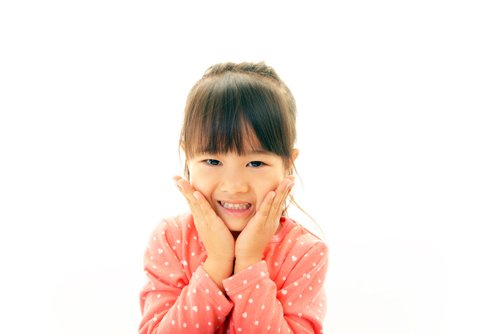We have already told you what you should learn from the Japanese. However, the art of borrowing, perseverance and respect for personal space are not all the features of the national character that can be adopted from this amazing people.
No less interesting is the approach of the inhabitants of the Land of the Rising Sun to the upbringing of children. It is called "ikuji". And this is not just a set of pedagogical methods. This is a whole philosophy aimed at the education and training of new generations.
Sweat, pain, tears… And now the "child of the Sun" is born. The first cry. The doctor carefully cuts the umbilical cord. Her little piece will later be dried and put in a box with gilded letters — the name of the mother and the date of birth of the child. The umbilical cord as a symbol of the invisible, but strong and unbreakable bond between mom and her child from now on.
Mothers in Japan are called "amae". It is difficult to translate and understand the deep meaning of this word. But the verb derived from it "amaeru" means "to pamper", "to patronize".
From time immemorial, raising children in a Japanese family has been a woman's responsibility. Of course, by the XXI century mores have changed a lot. If earlier representatives of the weaker sex were engaged exclusively in household chores, then modern Japanese women study, work, travel.
Nevertheless, if a woman decides to become a mother, she should fully devote herself to this. It is not welcome to go to work until the child is three years old. It's not right to leave the baby in the care of grandparents. The main duty of a woman is to be a mother, and it is not accepted in Japan to shift her obligations to others.
Moreover, up to a year, mother and child are practically one. Wherever the Japanese woman goes, whatever she does, the baby is always there — at her chest or behind her back. Baby slings appeared in the country long before they spread to the West, and creative Japanese designers are improving them in every possible way, developing special outerwear with pockets for children.
Amae is the shadow of her child. Constant physical and spiritual contact creates an unshakable maternal authority. For a Japanese, there is nothing worse than upsetting or offending his mother.

Copyright Shutterstock
Until the age of five, according to the principles of ikuji, a child is a celestial. They don't forbid him anything, they don't shout at him, they don't punish him. For him, there are no words "impossible", "bad", "dangerous". The kid is free in his cognitive activity.
From the point of view of European and American parents, this is pampering, indulging in whims, a complete lack of control. In fact, parental authority is much stronger in Japan than in the West. And all because it is based on a personal example and an appeal to feelings.
In 1994, a study was conducted Nihonjin no shitsuke to kyōiku : hattatsu no Nichi-Bei hikaku ni motosuite differences in approaches to education and upbringing in Japan and in America. Scientist Azuma Hiroshi asked representatives of both cultures to assemble a pyramid constructor together with their child. As a result of the observation, it was revealed that the Japanese women first showed how to build a structure, and then allowed the child to repeat it. If he was wrong, the woman started all over again. The Americans went the other way. Before starting to build, they explained in detail to the kid the algorithm of actions and only then, together with him (!), they built.
Based on the observed difference in pedagogical methods, Azuma identified the "enlightening" type of parenting. The Japanese instruct their children not with words, but with their own actions.
At the same time, the child is taught from an early age to be attentive to feelings — his own, people around him and even objects. A little prankster is not driven away from a hot cup, but if he is burned, amae asks him for forgiveness. Not forgetting to mention how much pain Chad's rash act caused her.
Another example: a spoiled kid breaks his favorite car. What will an American or a European do in this case? Most likely, she will take away the toy and read a lecture about how hard she worked to buy it. The Japanese woman will not do anything. Just say: "You're hurting her."
Thus, up to five years of age, children in Japan can formally do anything. Thus, the image of "I am good" is formed in their minds, which later turns into "I am well-mannered and loving my parents."

Copyright Shutterstock
At the age of five, a child is faced with a "harsh reality": he falls under strict rules and restrictions that cannot be ignored.
The fact is that from time immemorial, the Japanese people have been inclined to the concept of community. Climatic and economic conditions forced people to live and work hand in hand. Only mutual assistance and selfless service to the common cause ensured a rice harvest, which means a well-fed life. This explains both the highly developed syudan ishiki (group consciousness) and the ie system (patriarchal family structure). Public interests are above all. Man is a cog in a complex mechanism. If you haven't found your place among people, you're an outcast.
That is why grown-up children are taught to be part of a group: "If you behave like this, they will laugh at you." For a Japanese, there is nothing scarier than social alienation, and children quickly get used to sacrificing individual selfish motives.
The educator (and they, by the way, are constantly changing) in a kindergarten or a special preparatory school does not play the role of a teacher, but a coordinator. In the arsenal of his pedagogical methods there is, for example, the delegation of authority to supervise behavior. Giving tasks to the wards, the educator divides them into groups, explaining that it is necessary not only to do their part well, but also to follow their comrades. Favorite activities of Japanese kids are team sports games, relay races, choral singing.
Attachment to the mother also helps to follow the "laws of the pack". After all, if you violate generally accepted norms, amae will be very upset. This is a disgrace not on her own, but on her name.
So, for the next 10 years of life, the child learns to be part of microgroups, to work harmoniously in a team. This is how his group consciousness and social responsibility are formed.
By the age of 15, a child is considered to be a practically formed personality. This is followed by a short stage of rebellion and self-identification, which, however, rarely undermine the foundations laid in the previous two periods.
Ikuji is an unusual and even paradoxical system of education. At least, in our European understanding. However, it has been tested for centuries and helps to grow disciplined, law-abiding citizens of their country.
Do you think this approach is acceptable for domestic reality? Perhaps you have tried some principles of ikuji in the upbringing of your own children? Tell us about your experience.
Photo: Shutterstock